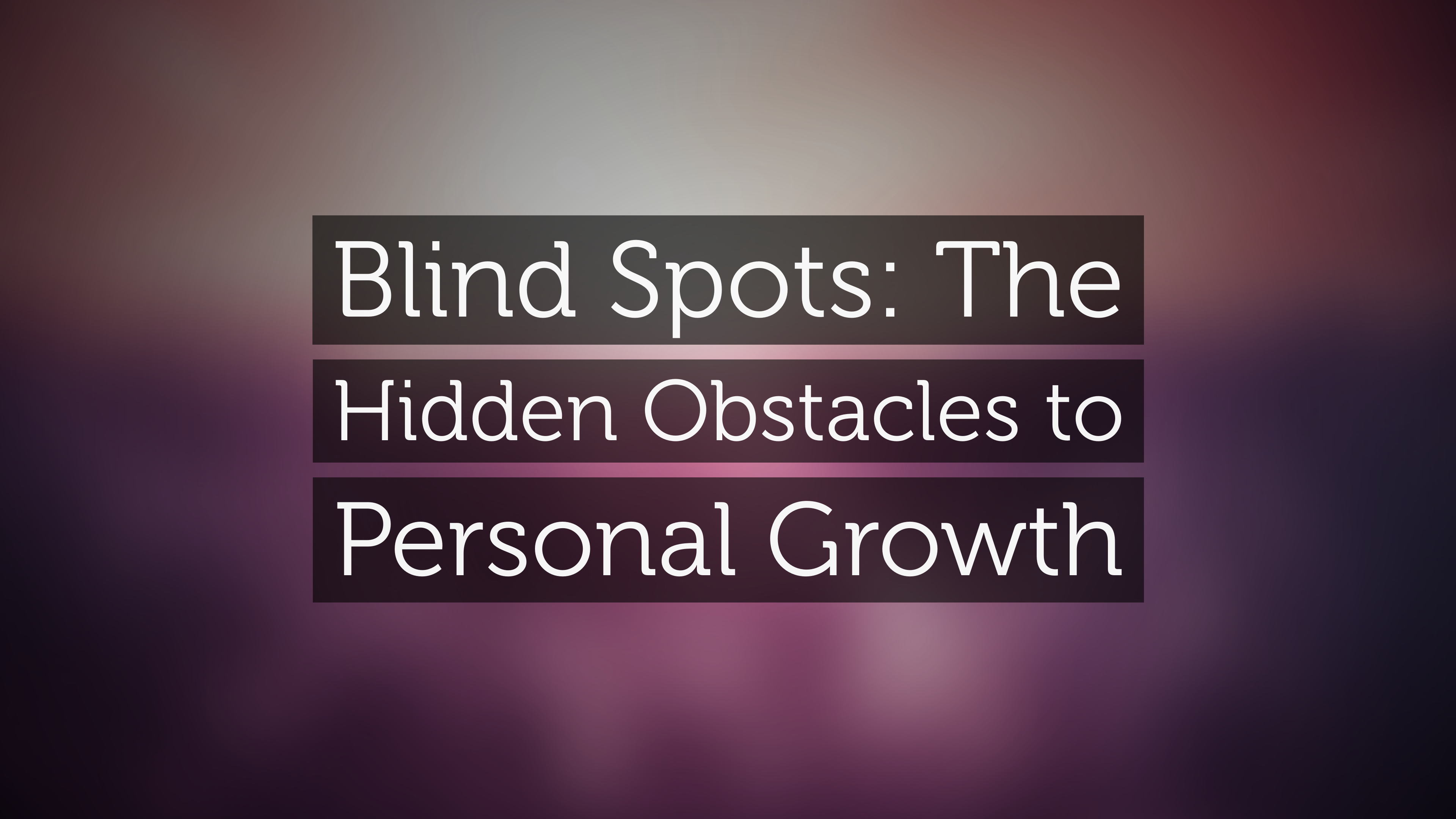Blind spots are areas of ourselves—our behaviors, beliefs, or habits—that we fail to recognize but that impact our lives. Think of a colleague who believes they’re a great listener but constantly interrupts. Or a leader who micromanages but sees themselves as empowering.
The problem? Blind spots hold us back. They limit self-awareness, affect decision-making, and strain relationships. But once identified, they become powerful opportunities for growth.
How to Identify Your Blind Spots
- Ask for Honest Feedback
- Seek input from friends, colleagues, or mentors. Ask, “What’s something I do that might hold me back?”
- 360-degree feedback assessments can provide structured insights.
- Seek input from friends, colleagues, or mentors. Ask, “What’s something I do that might hold me back?”
- Notice Emotional Reactions
- Pay attention to situations that trigger discomfort or defensiveness. These moments often point to an unseen issue.
- Example: If constructive criticism upsets you, you may have a blind spot around receiving feedback.
- Pay attention to situations that trigger discomfort or defensiveness. These moments often point to an unseen issue.
- Work with a Coach
- Coaches provide an unbiased perspective and ask questions that uncover hidden behaviors.
- A coach might challenge your assumptions, helping you see what’s been invisible.
- Coaches provide an unbiased perspective and ask questions that uncover hidden behaviors.
- Use Reflection and Self-Assessment
- Journaling and personality assessments (like the Johari Window) can highlight gaps between how you see yourself and how others see you.
How to Overcome Blind Spots
- Embrace Feedback, Even When It’s Hard
- Instead of reacting defensively, ask: “What can I learn from this?”
- Example: If multiple people say you struggle with delegation, there’s likely truth to it.
- Instead of reacting defensively, ask: “What can I learn from this?”
- Take Small, Consistent Action
- Identify one blind spot and work on it. If you tend to dominate conversations, make a habit of listening more and asking questions.
- Identify one blind spot and work on it. If you tend to dominate conversations, make a habit of listening more and asking questions.
- Practice Mindfulness
- Becoming more present helps you notice patterns in your behavior.
- Try this: Before responding in a tough situation, pause and ask yourself, “Am I acting on habit, or is there another way to approach this?”
- Becoming more present helps you notice patterns in your behavior.
- Seek Ongoing Support
- Find mentors, coaches, or accountability partners who will call out your blind spots and help you grow.
Why This Matters
Overcoming blind spots improves relationships, decision-making, and leadership. It fosters self-awareness, adaptability, and long-term success.
Your Next Step
Take action today. Ask someone you trust:
“What’s one thing I don’t see about myself that might be holding me back?”
Be open. Reflect. Grow. The better you see yourself, the greater your potential.
